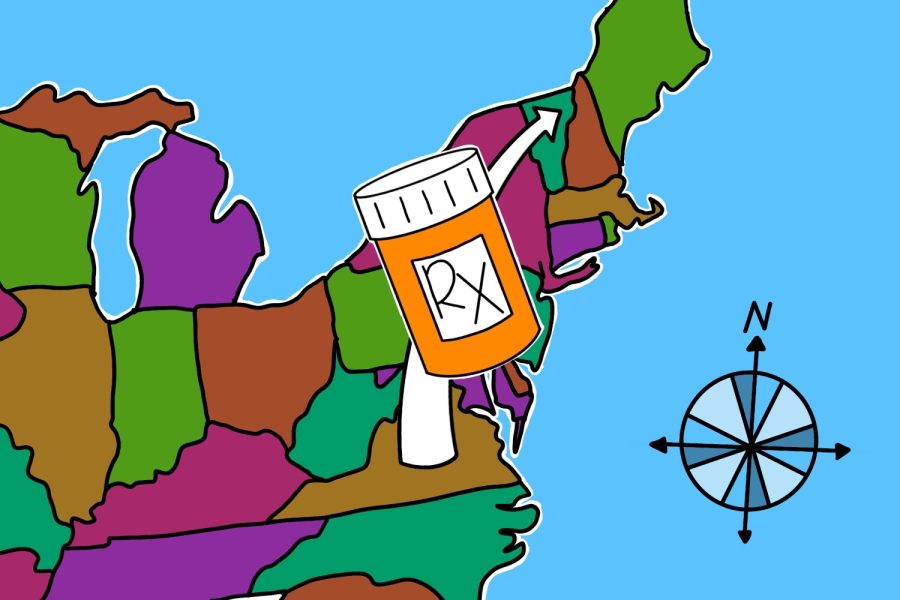Out-of-state students need a better way to get medication
April 18, 2022
I was diagnosed with attention-deficit/hyperactivity disorder over the 2020-2021 winter break. I was excited to access medication that would make academics more manageable.
The difficulty of receiving my medication as an out-of-state student turned my excitement into a tornado of paperwork, emails and phone calls.
The inaccessibility of medication for out-of-state students was a major factor in my decision to stop taking my ADHD medication and left me feeling more frustrated than ever.
ADHD impacts my life, but the inability to access medication can impact everyone with medical needs.
Many ADHD medications require trial periods, where an individual takes a medication for anywhere from three days to four weeks before returning to their doctor and assessing its effect, according to the Children and Adults with Attention-Deficit/Hyperactivity Disorder website.
When I first began taking medication at home, I went on a trial period for two weeks. I went back into the doctor’s office after those weeks to start my next dosage.
When I went back to school from break, I scheduled my next medication check-in virtually, but I learned that my doctor’s office cannot do telehealth appointments over state lines.
I had to wait until I went home for the summer to start my next trial of medication. With no spring break that year, I was forced to wait four months to return to my doctor’s office.
I returned to UVM in the fall and learned my doctor’s office does not send prescriptions across state lines.
Regulations are strict for Schedule II drugs, drugs with a high potential for abuse, which many ADHD medications fall under, according to the Drug Enforcement Administration website.
Medication under this classification also cannot be refilled, so a doctor has to write and send a new prescription each time a refill is needed, according to a Sept. 17, 2013 National Center for Biotechnology Information article.
Because I couldn’t refill my prescription in Vermont or visit home every time I needed a refill, my options were running out.
In search of a solution, I researched medication management options through UVM’s Center for Health and Wellbeing.
Students must submit six pieces of supporting evidence to receive medication management at UVM, according to the ADHD Management page on UVM’s Health and Wellbeing website. Students must also submit evidence of neuropsychological testing.
This evidence includes impairment symptoms before age 12, assessment of other conditions and a diagnostic interview, according to the webpage.
As someone diagnosed as an adult, I had trouble documenting official evidence. While I have a documented diagnosis, the tests cost lots of money, and I would have to return to my home doctor’s office to receive the supporting documents of my diagnosis.
I have an official diagnosis through my doctor, but can’t afford the testing that provides me with the necessary documentation to access medication management through UVM.
I haven’t found an easy way to access the medication, through UVM or my home doctor’s office, that could significantly improve my quality of life, despite a year and a half long journey.
I ran out of my one-month prescription a few weeks ago, and at this point I’m tired of dealing with this ineffective process.
While it may be difficult to change state laws around medication, UVM should make its medication management system more accessible so out-of-state students can regulate their medications while away from home.


















